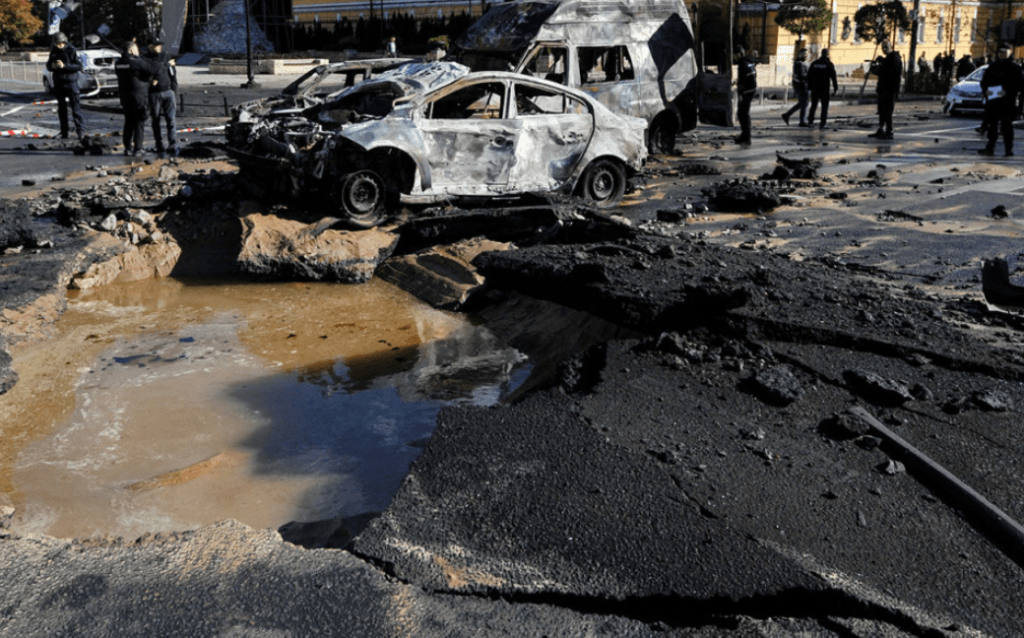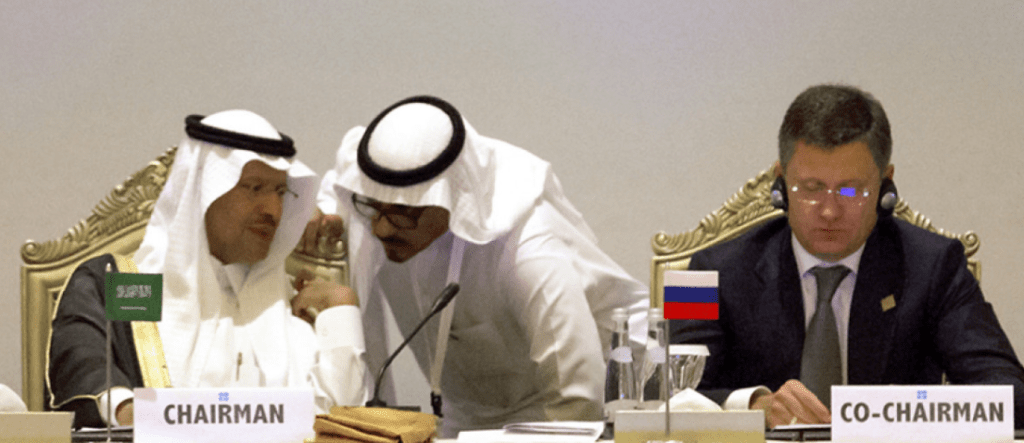Putin’s invasion of Ukraine and the subsequent war have cast a long shadow over European politics and economics and that is likely to continue for the foreseeable future. The Russian annexation of parts of Ukraine has all but guaranteed that the war will drag on.
The annexation was ‘sanctioned’ by a referendum in the areas in question, although no-one can take seriously any vote taken in the midst of conflict, when the population were voting, literally, with a gun to their heads. In August 1991, in the vote for independence after the collapse of the Soviet Union, the same regions voted overwhelmingly for independence from Russia. In Luhansk it was 83%, in Donetsk, 77% and even in Crimea over 54% voted for independence. Those votes are probably a far better indication of the real sympathies of the population.
It is possible, or even likely, that since 1991 many Ukrainians have changed their views on independence, but it is stretching credulity too far to suggest, as the Kremlin has done, that the population in the four areas controlled by Russian forces voted by 97% (on average) to become a part of Russia. Russian polling chiefs in Ukraine must be working from the playbook of Stalin, whose ‘Communist’ Party won all of its elections with nearly 100% of the vote. In fact, in some places, Stalin was “so much loved by his people” that many voted for his party twice, and they frequently got more than 100% of the vote.
Dark hints about battlefield nuclear weapons
Putin suggested that any attack on these areas would be considered as an attack on Russia itself and he dropped dark hints about defending the area “by all military means”, which has been interpreted by some to mean the deployment of battlefield nuclear weapons. Some of his advisers, like the Chechen leader, Ramzan Kadyrov, have even recommended such an escalation of the war, following the humiliating Russian retreat from the city of Lyman, when it was recaptured by Ukraine.
“Kadyrov”, according to a Financial Times report, “said Russia’s defence ministry had left troops in the area without adequate communications equipment, support and supplies…he called on Putin to retaliate by escalating even further against Ukraine”. Kadyrov is reported to have suggested “more fundamental steps including declaring martial law in the border regions and using low-yield nuclear weapons.“
But the deployment of weaponry is not based on the legalities or otherwise of annexation. They will be determined by the progress of the war and Putin’s perceived threat to his position in Moscow. In all likelihood, the annexation will make no fundamental difference to the conduct of the war or its outcome, whatever that may be.
It does make a ‘negotiated peace’ less likely, however. Ukrainian president, Zelensky, has suggested that the war will end only when all Ukrainian territories, including Crimea, are recaptured But being driven out of the Donbas would be a humiliation too great for Putin to consider and in the face of Ukrainian gains, he is doubling down on the war effort by mobilising large numbers of reservists to reinforce the army on the ground.
‘General Armageddon’ takes over command
The new military commander of Russian forces, Sergei Surovikin, has the delightful nickname General Armageddon, for the brutality and ruthlessness with which he conducted the war in Syria. We can therefore expect missile attacks such as those this week on Kyiv and other Ukrainian cities – aimed randomly at civilian areas – to be an increasing feature of the Russian war policy.

Given the recent Ukrainian victories in the field and the sabotage of the Kerch Strait Bridge that connects Russia to Crimea, there is an air of desperation about Putin’s military strategy. Having called up a third of a million additional reservists, he has provoked the biggest wave of opposition in Russia since the war started.
Throughout Russia, there have been many demonstrations in towns and cities against the mobilisation. In Dagestan in the Northern Caucasus, some demonstrators have fought police, a relatively rare occurrence in Russia. In at least one town, a recruiting station was set on fire by demonstrators. Some reports suggest that the mobilisation of the reservists, is focused on the national minorities in Russia, because they are more ‘expendable’.
Thousands of young men of military age have fled to Finland, Georgia, Kazakhstan and elsewhere and some border posts have seen huge traffic jams and queues of people waiting, some for days, to get out. There are louder voices of opposition to the war than there have ever been. There is no other perspective but that this opposition will grow the longer the war goes on.
Many expected the war to be shorter
Putin holds Russia in an iron grip, with complete control of the armed forces and all the repressive apparatus of the state. It may not seem likely at the moment, but it is not impossible that internal opposition to the war and further military humiliations at the front, could push some of the tops of the armed forces into opposition to Putin. If that did happen, then developments may take a sudden turn, although, with so much national prestige invested in the war effort, few generals would be prepared to accept anything that looks like a humiliating peace.
When the war started, many commentators expected it to be short, given the Russia’s apparently overwhelming military superiority. But the fierce resistance and much higher morale of Ukrainian forces and the influx of NATO armaments has swung the balance much more in Ukraine’s favour.
Russian troops appear to have a much lower level of morale and they have been hard-pressed to hang onto the ground they captured in the first weeks. Just as Putin was announcing the annexation of parts of the Donbas, his troops were preparing to evacuate the city of Lyman in Donetsk province. This loss, with the reported capture of many Russian troops trapped in the city, has come as a serious blow to Russia and a humiliation to Putin himself.
According to the head of the UK’s cyber intelligence at GCHQ, Sir Jeremy Fleming, Russian forces are running out of supplies and munitions. How much truth there is in this, and how much Fleming’s speech was itself part of the ongoing propaganda war, is impossible to tell. It is almost certainly true, however, that the costs to Russian workers are increasing week on week and the call to bring the troops home will only get louder.
Socialists were and are opposed to the Russian invasion
Socialists were and still are opposed to the Russian invasion of Ukraine. The assault was never aimed to “free Ukraine from fascism” but to bolster the military-strategic interests and the prestige of a narrow clique around Putin in the Kremlin. It was a military adventure in no way launched for the benefit of Russian or Ukrainian workers.
Seen through the eyes of Ukrainian workers, the invasion in February came as a gross violation of Ukrainian independence. There was a desperation and a determination to their defence of their cities and communities, particularly in the early phases of the war. It was of no interest to Ukrainian workers where better weapons come from, so long as they were supplied.
But looking through the lens of NATO strategists, the war is a golden opportunity to weaken Russia militarily and economically, and for the long term. NATO represents particularly the interests of the United States, which sees Russia as a rival superpower.
Whether it has a state-owned or a market economy, Russia is a continental power, with the largest land mass of any other nation state, and unparalleled natural resources. Despite the collapse of the Soviet Union and Russia’s embrace of capitalism, therefore, it is still seen as a long-term rival to US as global superpower.

Socialists are opposed to NATO, whatever Starmer says
Although in 1989 Mikhail Gorbachev thought he had a ‘deal’ with George W Bush over the apparent end of the cold-war and the non-expansion of NATO, in fact NATO has continued to expand westwards. Since the fall of the Soviet Union, no fewer than fourteen former ‘satellite’ states or constituent parts of the USSR joined the Alliance. Putin saw the invasion of Ukraine as a pre-emptive strike to prevent Ukraine, historically in Russia’s sphere of influence, becoming the fifteenth.
Socialists are opposed to NATO, whatever Keir Starmer might say. It is the military wing of Western capitalism and its many military adventures over the years have been conducted in the interests of the prestige and profits of capitalism, and specifically the USA. Indeed, the Russian deployment of military forces in Ukraine are comparable to the monstrous blitzkrieg waged against Iraq by Britain and the USA in 2003.
Whatever is said by the likes of Biden, Macron, Scholz or Truss, the capitalist powers have no interest in the ‘liberation’ of Ukrainian workers. That is for media consumption only. What these leaders want, as Marxist economist, Michael Roberts, wrote so succinctly, is a ‘free’ Ukraine which can be invaded by western capital instead of Russian tanks. They are not planning a military intervention, they will ‘fight’ to the last Ukrainian, after which they would collaborate in the economic exploitation of Ukraine and its workers.

We must see the war from an independent class viewpoint
It is important, even in the most difficult circumstances, that Marxists express opposition to the Russian invasion from an independent class viewpoint. We do not sing from the same hymn-sheet as the British or western media.
Neither do we put ourselves on the same standpoint Zelensky, the head of a government dominated by corrupt and self-serving oligarchs and one desperate to become part of NATO. His is a government that has wasted no time declaring martial law and eliminating workers’ rights, so that there is virtually no independent, organised labour movement in Ukraine today.
There may be little in the Ukraine and Russia of today that resembles an independent movement of the working class, certainly one that can put its stamp on events. But it is something for which we can hope. A freely organised working class movement in Russia would protest the war and demand the withdrawal of its troops, while its equivalent in Ukraine would campaign for a democratic and socialist strategy for a defensive war as long as necessary. The Russian and Ukrainian workers, those in uniform and those in the workplace, have ultimately the same interests in life, but they bear the cost of the war as long as it goes on.
Martin Wolf, the Financial Times’ chief economic columnist, has suggested that “disease and war” are the key factors shaping the modern global economy. The latest twist in the economic war, after the stopping of virtually all exports of Russian gas to Western Europe and the US threat of a price cap on Russian oil, is the decision by the oil-producing states to cut production. The OPEC+ group decided last week to cut production by 2mbd, a move that can only increase global prices and undermining attempts to cap Russian oil prices.
The Ukraine war is a major factor in the cost of living crisis impacting on workers everywhere in relation to oil, food and other commodities. For the foreseeable future it looks like having a hugely damaging effect on the lives of workers everywhere, and not least in Russia and Ukraine.
[Editorial note: Since this editorial was posted, this video has been brought to our attention. It is worth watching, as it shows discontent among conscripts in Omsk over the recent mobilisation, demanding payment for the mobilisation and economic security for their families]



